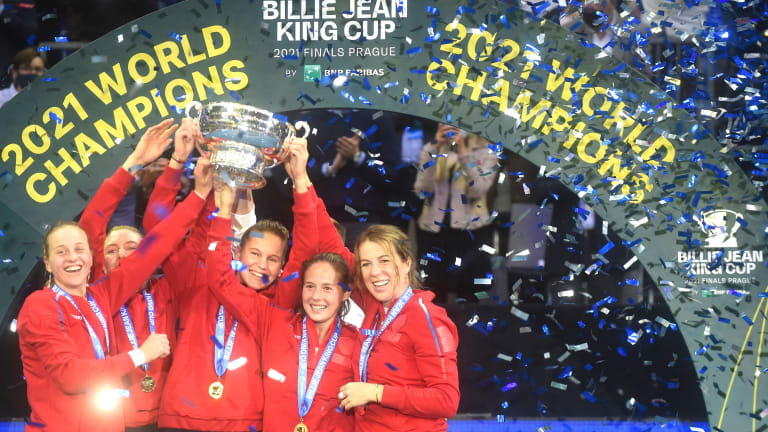Billie Jean King Cup
Newcomer Liudmila Samsonova clinches Billie Jean King Cup for Russia
By Nov 06, 2021Billie Jean King Cup
First Billie Jean King Cup match in Malaga postponed following severe weather warning
By Nov 13, 2024Billie Jean King Cup
Billie Jean King Cup Finals relocated to Malaga, will run concurrently with Davis Cup Finals
By Jul 17, 2024Billie Jean King Cup
New life has been breathed into the Billie Jean King Cup, and team USA
By Apr 21, 2024Billie Jean King Cup
Jessica Pegula returns to form, leads U.S. past Belgium in Billie Jean King Cup Qualifier
By Apr 15, 2024Billie Jean King Cup
Led by Elina Svitolina, Ukraine turns to Amelia Island as home venue for BJK Cup Qualifiers
By Apr 10, 2024Billie Jean King Cup
Where does the Billie Jean King Cup go from here?
By Oct 25, 2023Billie Jean King Cup
Gauff, Pegula, Swiatek won't play in the Billie Jean King Cup Finals after the WTA Finals
By Oct 09, 2023Billie Jean King Cup
Saudi Arabia enters female team at ITF event for first time
By Feb 23, 2023Billie Jean King Cup
ITF to work with WTA on Billie Jean King Cup scheduling following Iga Swiatek withdrawal
By Oct 05, 2022Billie Jean King Cup
Newcomer Liudmila Samsonova clinches Billie Jean King Cup for Russia
This was Russia's fifth time winning the Billie Jean King Cup, but their first time since 2008.
Published Nov 06, 2021
Advertising

Russia won their first four Billie Jean King Cup titles in a five-year span from 2004 to 2008. Now, a fifth title in 2021.
© AFP via Getty Images